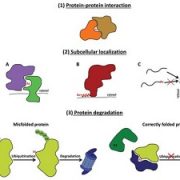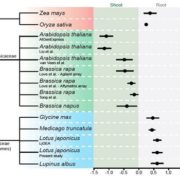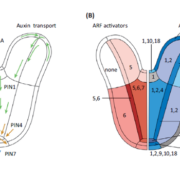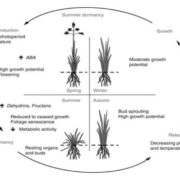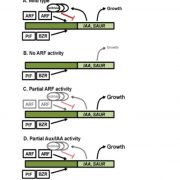CLASP sustains cell proliferation through a brassinosteroid signaling negative feedback loop ($) (Curr. Biol.)
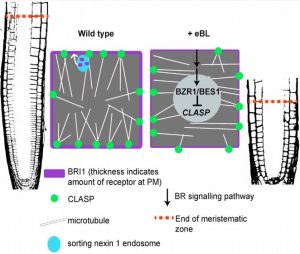 Brassinostreroid (BR) regulates the development of the root apical meristem. High levels of BR have inhibitory effects on cell production rates in the meristem and low levels show the opposite effect. Ruan, Halat et al. showed that BR regulates microtubule-associated CLASP (CLIP-Associated Protein) expression through the transcription factors BZR1 and BES1 in a BRI1-dependent manner, altering microtubule organization and regulating CLASP distribution. CLASP maintains the BR receptor, BRI1, at the plasma membrane, and clasp-1 mutant meristems have reduced sensitivity to BR. Their findings suggest that BR signaling reduces root meristem size by downregulating CLASP expression. Furthermore, comparative transcriptomics demonstrated that in the clasp-1 mutant, genes related to hormonal pathways and cell cycle components required for meristem growth are differentially expressed. This work presents a dual mechanism for meristem development, in which BR signaling regulates CLASP expression and CLASP maintains BRI1-dependent signaling. (Summary by Arif Ashraf) Curr. Biol. 10.1016/j.cub.2018.06.048
Brassinostreroid (BR) regulates the development of the root apical meristem. High levels of BR have inhibitory effects on cell production rates in the meristem and low levels show the opposite effect. Ruan, Halat et al. showed that BR regulates microtubule-associated CLASP (CLIP-Associated Protein) expression through the transcription factors BZR1 and BES1 in a BRI1-dependent manner, altering microtubule organization and regulating CLASP distribution. CLASP maintains the BR receptor, BRI1, at the plasma membrane, and clasp-1 mutant meristems have reduced sensitivity to BR. Their findings suggest that BR signaling reduces root meristem size by downregulating CLASP expression. Furthermore, comparative transcriptomics demonstrated that in the clasp-1 mutant, genes related to hormonal pathways and cell cycle components required for meristem growth are differentially expressed. This work presents a dual mechanism for meristem development, in which BR signaling regulates CLASP expression and CLASP maintains BRI1-dependent signaling. (Summary by Arif Ashraf) Curr. Biol. 10.1016/j.cub.2018.06.048



